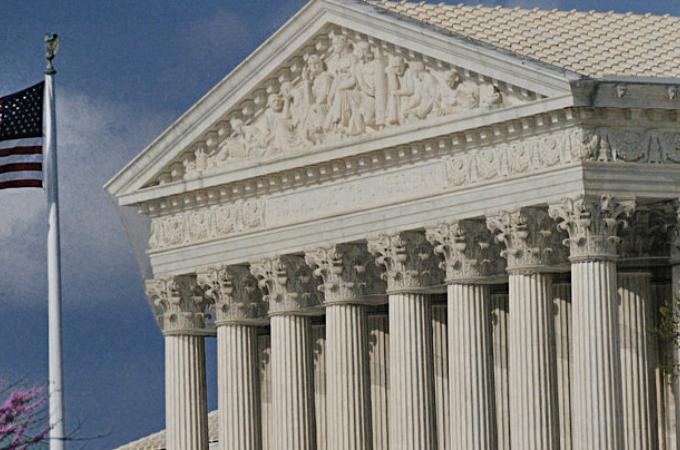Bench and bar come before the altar at the Red Mass
The Red Mass is a tradition in the Catholic Church that dates back to the 13th century.
The opening of the court season in the Middle Ages was usually in September and often fell on Sept. 14, the Feast of the Exaltation of the Holy Cross, when the priest wore red vestments at the altar.
Members of the bench and bar would assemble for Mass, and immediately after Mass there would be a ceremonial opening of the new court season at the nearby courthouse, hence the Red Mass for the official opening of the court season.
In Washington every year there is a Red Mass celebrated on the Sunday immediately before the opening of the new session of the Supreme Court, although the Sunday readings and vestments are typically used.
Generally speaking, we can say that for centuries we Catholics have come before God in solemn fashion during the season we call autumn to invoke God's blessing on our judges, lawyers, government officials and others who look to the courts for the protection and promotion of justice in our community.
Justice is certainly not vengeance -- getting even -- although it does imply an evenhandedness. Fairness is a good way to think about justice. Being evenhanded is surely a requirement of justice. Lawyers and judges protect and promote just relationships. It is their vocation to keep society in balance, on the level.
Justice and the law look to one-on-one relationships, to exchanges, with a constant concern for fairness. And both justice and the law direct attention to inequalities, to special needs that are unmet, especially the needs of the poor and vulnerable.
But justice and the law look beyond one-on-one relationships to a broader range of social concerns. And the Church has been taking this broader view of social concerns from the days when Jesus walked this earth.
"He came to Nazareth, where he had grown up," writes St. Luke, "and went according to his custom into the synagogue on the Sabbath day. He stood up to read and was handed a scroll of the prophet Isaiah. He unrolled the scroll and found the passage where it is written:
"'The Spirit of the Lord is upon me, because he has anointed me to bring glad tidings to the poor. He has sent me to proclaim liberty to captives and recovery of sight to the blind, to let the oppressed go free, and to proclaim a year acceptable to the Lord.'
"Rolling up the scroll, he handed it back to the attendant and sat down, and the eyes of all in the synagogue looked intently at him. He said to them, 'Today this Scripture passage is fulfilled in your hearing'" (Lk 4:14-21).
With that, he launched what we now call the social ministry of the Church, although at that point in time the Church had not yet been formally established. But Jesus, who is for us the Church, took it upon himself to declare that he and we, as Church, must have a special concern for the poor, for the infirm, for those in prison and for all the oppressed. Their condition points to social imbalance, to inequalities, to injustices that must be addressed.
The Red Mass gives us a special moment for self-examination, for social reflection, for consideration of what must now be done to correct these imbalances and inequalities and restore right relationships. We have to begin thinking of the opposite of poverty not as wealth but as justice.
- Father Byron is a columnist with the Catholic News Service.



















